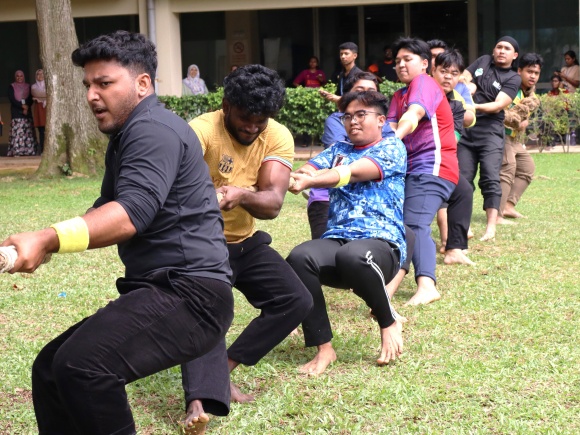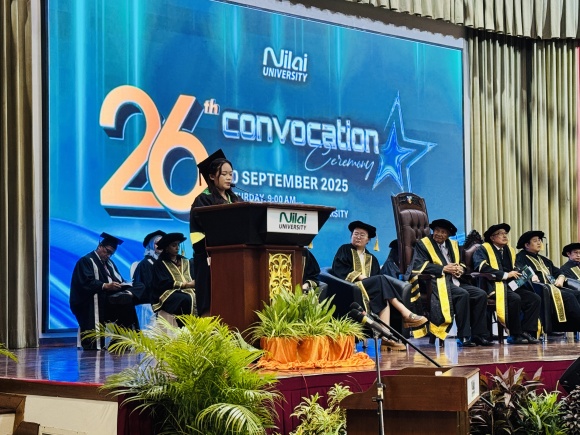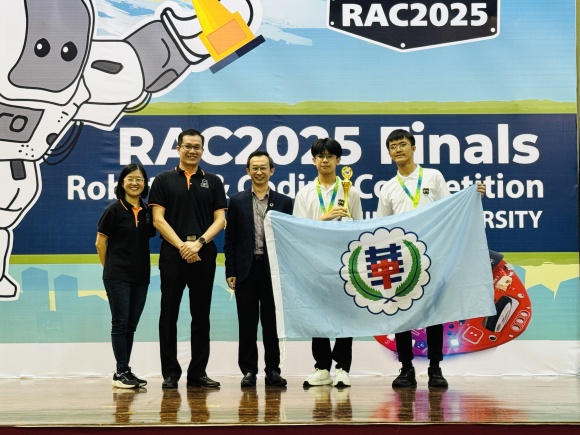TWO decades into the 21st century, the field of biotechnology has left a trail of noticeable contributions to humankind. The United Nations has projected that the global population will reach 8.5 billion in 2030 and 11 billion by 2100.
Population growth mandates the sustainability of resources, particularly food. To ensure a sustainable environment and continuous supply of nutritious quality food sources, the role of biotechnology is crucial.
“In a nutshell, biotechnology applies the usage of living microorganisms and biosystems to develop or improve natural conditions such as soil and water to support further food production,” said Nilai University’s School of Applied Sciences head Dr Ng Shee Ping.
She added that Nilai University offers the Diploma in Biotechnology and Bachelor of Science (Hons) in Biotechnology, where students are exposed to industry compliance in conducting laboratory experiments.
They also learn the fundamentals of biotechnology, namely related knowledge and techniques in molecular biology, which will lay a solid foundation and understanding of cells and their genetic set-up.
Dr Ng, who completed her Doctor of Philosophy in Applied Biology at Swinburne University of Technology, Australia, believes the application of biotechnology is still in its early stages. The knowledge and exposure gained from these programmes will enable students to venture into industries such as pharmaceutical, healthcare, agricultural, food and environment.
“Biotechnologists could scientifically exploit microorganism or cells at the molecular level, to a certain extent, to restore and maintain a healthy ecological system best suited for crops.
“This is one of the roles of biotechnology in food production,” said Dr Ng.
 Dr Yang (left) and Dr Ng say biotechnology plays a vital role in ensuring the sustainability of resources as the world’s population grows.
Dr Yang (left) and Dr Ng say biotechnology plays a vital role in ensuring the sustainability of resources as the world’s population grows.
Impact of biotechnology on water treatment
To meet the demands of the current and future population, preserving natural resources is crucial. Water is a critical resources for humankind. According to the World Health Organization, each person requires about 20 litres of water per day to ensure proper hygiene.
“Water pollution is one of the main environmental hazards we face today. It occurs when toxic pollutants of varying kinds (organic, inorganic, radioactive, etc) are directly or indirectly discharged into the streams, rivers and sea without adequate treatment,” said Centre for Post Graduate Studies and Research head Dr Evyan Yang Chia Yan, who is also a senior lecturer in the School of Applied Sciences.
Biotechnologists are stepping in to save the day with natural solutions to reduce or clear the pollutants. Several types of biotechnological treatments have been implemented throughout the world.
According to the UN, water security is crucial in sustaining livelihood, well-being and socio-economic development. “Biological water treatment processes are available for the removal of a wide range of chemical contaminants; they are less costly and less energy-intensive. The processes reduce the use of potentially hazardous chemicals and typically result in complete mineralisation of contaminants,” said Dr Yang.
She added that some final-year students pursuing the Bachelor of Science (Hons) in Biotechnology conduct water treatment research projects such as water treatment processes via photocatalysis, degradation of pollutants using nanoparticles and antimicrobial effects in a polluted solution using nanoparticles.
The laboratory skills acquired throughout the Bachelor of Science (Hons) in Biotechnology are applicable when conducting selected water treatment research projects during the students’ final year.
“The penetration of biotechnology is still fairly low. But it plays a significant role in areas like agriculture, pharmaceuticals and bioenergy. Water for irrigation, industry and domestic use is also a key requirement for human sustainability,” said Dr Yang.
Are you ready to take on the world of science?
Nilai University is open seven days a week except on public holidays. Its educational counsellors will guide you through the application process.
Visitors can also expect a personalised tour around the 42ha campus and the wellequipped laboratories. Furthermore, Nilai University offers partial and full scholarships to well-deserving students.
For details, call 06-850 2308 or e-mail [email protected] or log on to Nilai University’s Facebook page at https://www. facebook.com/NilaiUniversity/ or website at www.nilai.edu.my
Read Online: PressReader.com



